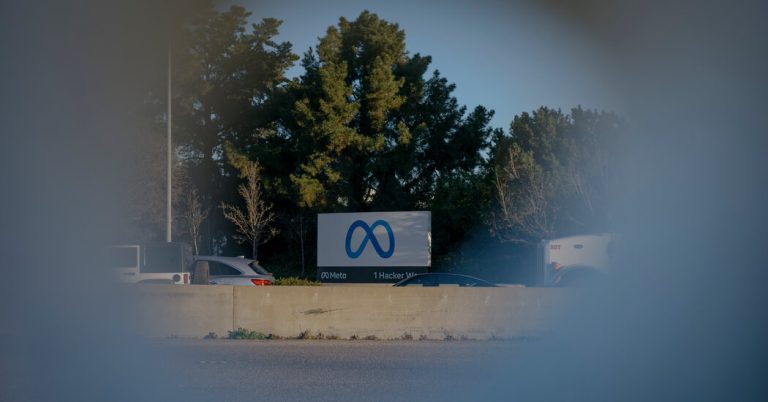Meta on Thursday reported a 25% rise in quarterly revenue while profits more than tripled, a rise fueled by its advertising business after a volatile 18 months of layoffs and a difficult digital advertising market.
The Silicon Valley company, which owns Facebook, Instagram and WhatsApp, also said it will issue its first dividend, 50 cents per share. Dividends are usually associated with mature and slower growing companies. Meta made the announcement as it spends heavily on capital investments such as data centers and other infrastructure. The company also approved an additional $50 billion in stock purchases.
The results sent Meta shares up 14.5% to $449.51 in after-hours trading.
“Being a more agile company helps us execute better and faster,” Mark Zuckerberg, Meta’s founder and CEO, said on a call with investors Thursday.
“Moving forward, an important goal will be to create the most popular and advanced AI products and services,” he added. “If we succeed, everyone who uses our services will have a world-class AI assistant to help get things done.”
For the quarter ended Dec. 31, Meta’s revenue was $40.1 billion, up from $32.2 billion a year ago and beating Wall Street estimates of $39 billion, according to data compiled by FactSet. Profits were $14 billion, up from $4.65 billion a year earlier.
The company has benefited from the continued recovery in digital advertising, although marketers remain cautious about where they allocate their advertising budgets. On Tuesday, Google reported search revenue and profit margin for its latest quarter that fell short of Wall Street expectations due to modest advertising growth.
Meta has had quite a few tumultuous years as the global economy has shifted and rocked the online ad markets. The company has also faced scrutiny over privacy issues and the spread of misinformation and toxic content on its platforms.
Mr. Zuckerberg has taken the company into the immersive digital world of the metaverse. Last year, it also embarked on what it called a “year of efficiency” to cut costs, including laying off tens of thousands of workers. The company’s workforce has shrunk by 22 percent since December 2022 and now stands at 67,317 employees.
Last quarter, Reality Labs, the division responsible for making virtual and augmented reality glasses and products, surpassed $1 billion in revenue for the first time. But it’s not making money, losing $4.6 billion during that time.
Meta remains under pressure to curb harmful content on its platforms, which are regularly used by more than four billion people. On Wednesday, Mr. Zuckerberg — along with other tech executives — was grilled at a congressional hearing about the proliferation of online child sexual abuse material. Mr Zuckerberg told those attending the hearing that he was sorry for what families of children who had been abused online had experienced.
Despite this, more people return regularly to Meta’s services. The company hosts more than 3.98 billion users on its apps each month, a 6 percent increase from last year.
It also continues to invest heavily in artificial intelligence and redesigning its data centers to keep up with other tech giants in the highly competitive field. Meta said part of its increased operating expenses came from attracting top technical talent in artificial intelligence
“We play to win,” Mr. Zuckerberg said of the company’s efforts in artificial intelligence. “Expect us to continue to invest aggressively in this area.”
“General intelligence will also be the theme of our product work,” he added, referring to a more advanced type of artificial intelligence that can solve cognitive tasks that humans can perform.
The company said the layoffs and some other cost-cutting measures, such as the restructuring of its data centers, were “completed.” It took a $1.1 billion restructuring charge for the quarter.
Meta said it expects to continue growing in the first three months of the year, with revenue of $35 billion to $37 billion.
The company also raised its forecast for capital spending to $30 billion to $37 billion through 2024. Much of that will include building and maintaining its infrastructure, as well as the big costs of AI research and development.




